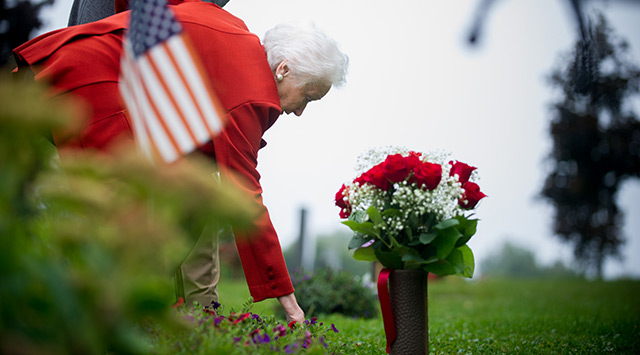Burial & Cremation
Cremation vs. Burial: An Overview
Deciding whether to choose cremation vs. burial is an important task when outlining your end-of-life wishes. How your remains are laid to rest is often referred to as “final disposition” or “body disposition.”

There are a number of factors that may contribute to your decision:
- Your spouse, partner or close loved ones’ wishes if you want to ensure you’re laid to rest together.
- Your religious or spiritual beliefs. Some faiths prohibit cremation, for example.
- How much you’d like to spend on burial or cremation.
- The funeral, memorial service or end-of-life celebration you envision.
- The timeframe your family has to carry out your wishes.
- Your thoughts on the potential environmental impact of your death.
Regardless of your choice, the decision is a highly personal one. Having conversations with your loved ones will help reduce the chance that your wishes will not be honored or that your family will have to make tough decisions on your behalf.
Burial and Cremation Options at a Glance
Burial
Location Options:
- Cemeteries or memorial parks in an in-ground burial plot.
- Entombment above ground in a public mausoleum, private mausoleum or lawn crypt.
Requirements:
- Caskets are required in many cemetery plots and in mausoleums
- Embalming is often legally mandated for burial and entombment unless you opt for a green burial at a designated natural burial site.
Cost:
- The average cost of an in-ground burial at a cemetery that includes casket, embalming, grave site fees, burial vault, headstone or gravemarker is $7,000.
- There are additional costs for the funeral services.
Additional reasons people choose burial:
- Burial ensures that loved ones have a place to visit and pay their respects.
- Entombment in mausoleums give family a place to visit in any weather.
- Burial is the most traditional option.
Cremation
Location Options:
- Ashes can be stored in an urn privately, scattered at a meaningful location or entombed in a columbarium, where vessels are encapsulated in private spaces.
Requirements:
- Some states require embalming within a certain timeframe after death, which impacts your plans if cremation cannot be completed within that time.
Cost:
- The average cost of cremation that includes a cremation casket is $2,500.
- There are additional costs for memorial services held at a funeral home or crematory.
Additional reasons people choose cremation:
- Overall costs (e.g. no plot is required)
- Memorial services can be held at any time
The choice between a burial versus cremation is part of the end-of-life planning process. Preparing and communicating your end-of-life wishes in advance takes the burden off your loved ones to decide for you upon your death. It’s an important part of death etiquette and a gift you can leave your family.
Back to Planning Center
More Funeral & Memorials Resources
Related Posts

The 5 most stressful financial concerns for pre-retirees
If you’re thinking about retiring, you may be facing fears of being able to survive on a limited, fixed income, in a world where everything is gradually becoming more expensive.

7 Reasons Why You Should Make or Update Your Will this August.
Wills are one of those things in life that everyone knows they need, yet somehow seem to procrastinate when it comes to getting it done.

11 Critical Things To Do When Your Spouse Dies
"Being in the financial planning industry for over 35 years and focusing on end of life planning, we’ve become accustomed to seeing first-hand what families go through after the death of a loved one. Many times, there is added pain and frustration because they just don’t know what to do." Michelle Braddock, Co-Founder, My Life and Wishes Inc.

Critical Tips for Paying Expenses of a Deceased Loved One
There are many expenses after a person dies. The most immediate being burial and funeral costs. So what's the best way for family or personal representatives to pay for these expenses? Should you write a check or pay for these expenses with the deceased persons’ credit card? The answer is probably not! Even if you're an authorized user on these accounts, it may be considered Fraud to continue to use them once a person dies.